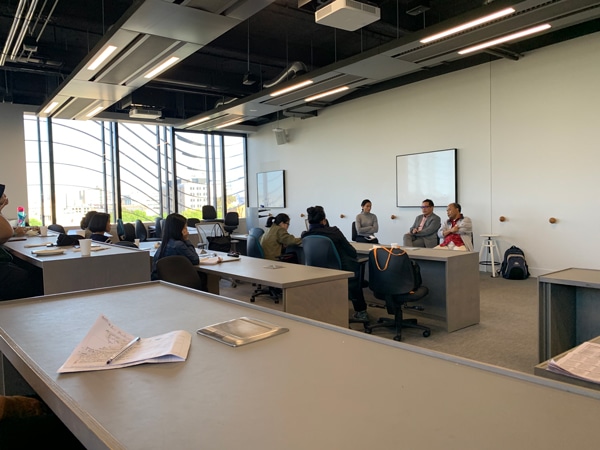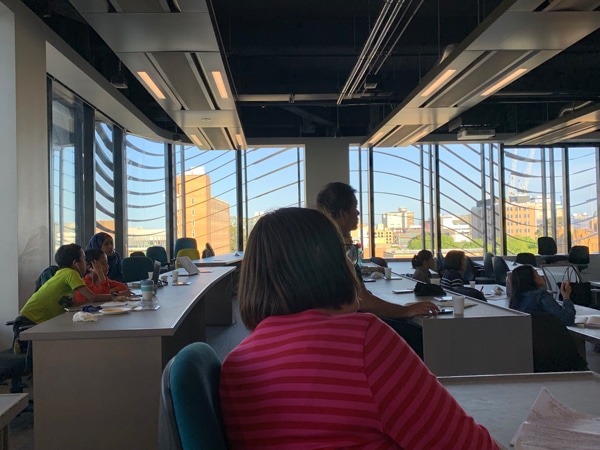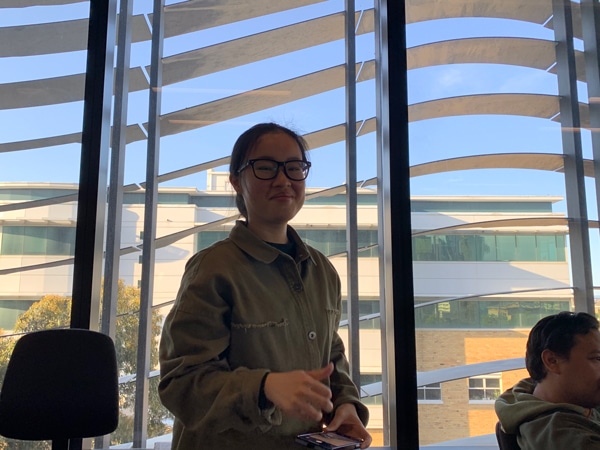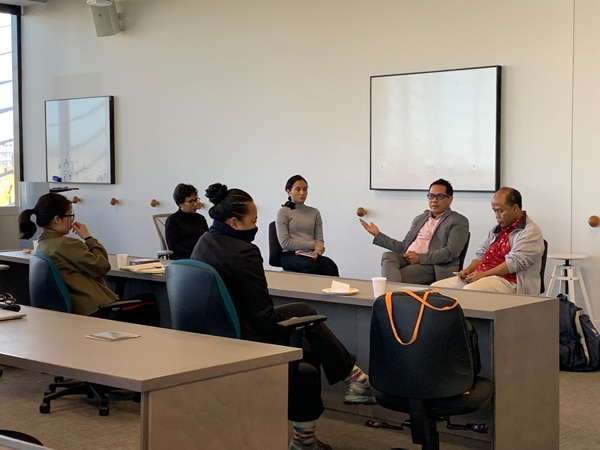Absurd, unlikely and improbable. These are the words that sprung up into my mind upon the first few minutes of the session. On-demand economy, also known as sharing economy, has initiated an untapped potential we never know before – ourselves. Inventory does not have to be the sole responsibility of a single entity and can be distributed among common folks who have their own item. Automobiles, properties and paraphernalia can all be shared and rented out without the need of central warehousing or any central depot housing all the available inventories. Yet, in the close-knit classroom of Room 556 at Melbourne University’s Arts West North Wing, a discussion is about to unfold at 5:15 P.M. on how the reason behind the emergence of on-demand economy may be linked to fundamentalism. With the topic of the evening being “Precarious Lives: The Precariat and Migrant Workers from Indonesia”, it seems fitting that ultimately it should tie into the missing link between the two – and Diatyka Widya Permata Yasih is about to show just that.

Presenting three speakers for the evening, the session promises a full session of intriguing and mind-boggling discussion on what seems to have been taken for granted – the societal shift. Aside from the rise in climate awareness, the emerging protest around the world, there is also the economic and societal implication which seems to be more insidious in nature simply because they are not always visible to the naked eye. Among the many changes in societal norm lies the economic change which we may not realize is occurring around us – the rising trend of on-demand occupation. Offering flexibility, attractive pay per passenger rates and the freedom to take or drop a potential passenger, the sharing economy offers you the ability to be your own boss and work at your own pace. But beneath the seemingly ideal concept lies a range of risks associated with the business model.

Are they an employee or an independent contractor
It is easy to think of Uber or any other ridesharing drivers as employee. After all, they are bound by the rules of the app and company – and has to work under the standard of the company. However, the fact that they need to invest their inventory into the equation also qualifies them as an independent contractor. After all, as an employee, you should not need to invest your possession into your work. This ambiguity opens up the gray area on whether drivers are eligible for the company’s accident insurance. If they are an employee, they should be covered for the possibility of accidents and unprecedented circumstances. If they are an independent contractor, it means they are responsible for their own safety and coverage. It is a gray area that could potentially change the dynamics and cost structure of the sharing economy concept.
Risk of molestation and robbery faced by female drivers
In Indonesia, ridesharing drivers primarily use motorcycle as their main vehicle. Diatyka explains that her interview with female drivers has revealed that they are more prone to becoming victims of molestation and robbery by passengers. Yet, the victimized drivers are still hesitant to file a complaint because they do not wish to lose their jobs. The fact that there is little to no protection offered for victims of molestation also presents a pressing problem in itself.

An uncertain income level
Unlike traditional fixed income occupations, working in an on-demand industry does not promise any fixed income like your everyday job. This means that there will be a time when your income is high and other time when it hits rock bottom. There is no guarantee that you will be able to make the same amount of money next month as there is no telling how many passengers you will get. This opens the room for employment abuse as there is no compensation nor help offered when drivers are unable to secure any ride. One may see it as a performance-based assessment but others may see it as compounding income inequality among the drivers.
Now how do these aspects from on-demand economy link into the rise in fundamentalism and extremism? Wahyu Susilo argues that we are entering an age of economic and income uncertainty. Amidst the uncertainty that people feel toward their income and lifestyle, they find solace in the certainty and structure of religion. Aris Mundayat adds that many of the fundamentalist members whom he spoke with told him that they were drawn by the dream of a united group. It is this unity that they very much crave – an opposite from the current societal norm where individualism seems to be the trend and everyone treats others to each their own. Yet Wahyu and Aris argue that fundamentalism, as long as they are still not resorting to violent extremism, can still be convinced with rational and reason. It is when they resort to violence that all is lost. Thus, it becomes ever more important for us to play an active role in looking out for each other before it is too late.
As the evening concludes and the speakers take their leave, participants are left intrigued as they deliberate further on how economy and societal extremism ties together. In the seemingly unrelated field of sharing economy and fundamentalism, they are able to draw a line connecting the two seemingly separate concepts. Who knows what else they are able to get from future discussions?
Text and photo: Edward Tanoto

















